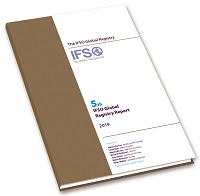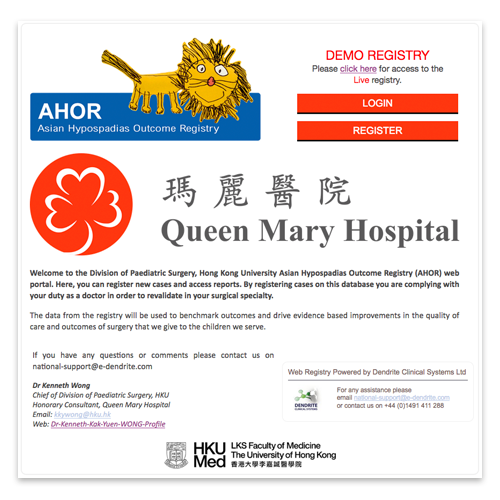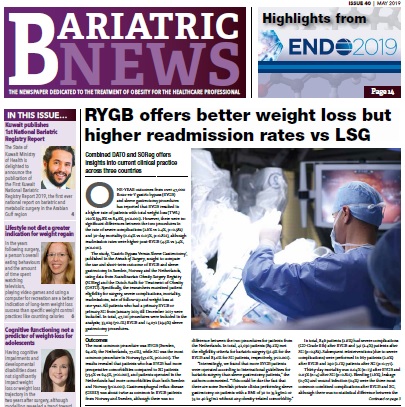MiECS randomised controlled trial to assess MiECC vs. cCPB
 Researchers led by the Clinical Research Unit at the Special Unit for Biomedical Research and Education (SUBRE), Aristotle University of Thessaloniki School of Medicine, Greece, have initiated a randomised control trial (RCT) that will compare minimally invasive extracorporeal circulation (MiECC) with conventional cardiopulmonary bypass (cCPB).
Researchers led by the Clinical Research Unit at the Special Unit for Biomedical Research and Education (SUBRE), Aristotle University of Thessaloniki School of Medicine, Greece, have initiated a randomised control trial (RCT) that will compare minimally invasive extracorporeal circulation (MiECC) with conventional cardiopulmonary bypass (cCPB).
According to the researchers, the ‘Minimally invasive extracorporeal circulation versus conventional cardiopulmonary bypass in patients undergoing cardiac surgery (MiECS)’ trial will be one of the largest multicentre RCTs on extracorporeal circulation. The study will be conducted under the auspices of Minimal Invasive Extracorporeal Technologies International Society (MiECTiS).
“This study is ultimately designed to address the emerging effectiveness of MiECC systems in the light of modern perfusion practice worldwide,” explained Professor Polychronis Antonitsis, Associate Professor of Cardiac Surgery, School of Medicine, Faculty of Health Sciences, Aristotle University of Thessaloniki, Greece, and co-investigator of the trial. “The primary hypothesis is that MiECC, as compared to cCPB, reduces the proportion of patients experiencing serious perfusion-related postoperative morbidity after cardiac surgery.”
According to the researchers, the MiECS study will overcome most limitations of previous trials of MiECC as it will focus on specific perfusion-related clinical outcomes after cardiac surgery that could be potentially affected by MiECC, and should also target for higher-risk patients undergoing complex procedures that are more likely to develop complications and, thus, benefit from the advanced technology.
The study will be conducted in ten to 15 cardiac surgery centres worldwide (Germany, Greece, Italy, United Kingdom, Switzerland, Turkey and Canada) and any surgeon with an experience of more than 50 patients operated on MiECC is eligible to take part. Patients will be recruited if they are having coronary artery bypass surgery, aortic valve replacement or both. The research objectives will be addressed by randomising participants (1:1 ratio) to have surgery using MiECC system or cCPB.
The trial will be powered by Dendrite Clinical Systems’ Intellect Web software that will collect patient demographic, procedural, complication/s and outcomes data. In addition, the innovate software features automatic patient randomisation - once the inclusion and exclusion criteria are completed, a random number generator automatically randomises the patient to a treatment group.
"This intuitive system is incredibly easy to use whether it is a cardiac surgeon, perfusionist or nurse entering the data. In addition, investigators can monitor each patient record as the trial continues. With a paper-based system, one has no idea who is enrolling patients, who has put in incomplete data etc without directly monitoring them," explained Dr Peter Walton, Managing Director of Dendrite Clinical Systems. “Our system allows researchers to keep a track on patient randomisation and importantly, ensure centres are adhering to protocol etc. “A web-based platform for data collection offers unprecedented access by investigators across multiple sites, allowing real-time supervision of patient enrolment. Our web-based system can be adapted for national and international clinical registries and trials in any clinical setting.”
A total of 1,300 participants will be randomised in two arms over a period of 36 months. The composite primary outcome consists of death, myocardial infarction, stroke, acute kidney injury, reintubation, tracheostomy, mechanical ventilation for more than 48 hours, or reoperation up to 30 days after surgery.
“If MiECC is shown to be effective in such a trial, the technology is available and could be rapidly implemented in clinical practice providing a significant healthcare benefit,” Professor Antonitsis concluded.
 The Fifth IFSO Global Registry Report (2019) has been released at the XXIV World Congress of the International Federation for the Surgery of Obesity and Metabolic Disorders (IFSO) in Madrid, Spain. Published by Dendrite Clinical Systems, under the auspices of the IFSO, the publication reports data from more than 60 countries on over 833,000 operations including baseline obesity-related disease, operation types, operative outcomes and disease status after bariatric surgery.
The Fifth IFSO Global Registry Report (2019) has been released at the XXIV World Congress of the International Federation for the Surgery of Obesity and Metabolic Disorders (IFSO) in Madrid, Spain. Published by Dendrite Clinical Systems, under the auspices of the IFSO, the publication reports data from more than 60 countries on over 833,000 operations including baseline obesity-related disease, operation types, operative outcomes and disease status after bariatric surgery. Dendrite Clinical Systems has announced the installation of its National Bariatric Surgical Registry software at the Sheik Al Jaber Al Sabah Hospital, in Kuwait. The Sheik Al Jaber Al Sabah Hospital, opened by His Highness the Amir Sheikh Sabah Al-Ahmad Al- Jaber Al-Sabah in November 2018, consists of five towering 10-stories structures built on a 220,000 square meters and has a hospital bed capacity of around 1,160 with 36 operation rooms, a medical centre, a helipad and a parking lot accommodating some 5,000 vehicles.
Dendrite Clinical Systems has announced the installation of its National Bariatric Surgical Registry software at the Sheik Al Jaber Al Sabah Hospital, in Kuwait. The Sheik Al Jaber Al Sabah Hospital, opened by His Highness the Amir Sheikh Sabah Al-Ahmad Al- Jaber Al-Sabah in November 2018, consists of five towering 10-stories structures built on a 220,000 square meters and has a hospital bed capacity of around 1,160 with 36 operation rooms, a medical centre, a helipad and a parking lot accommodating some 5,000 vehicles. Dendrite Clinical Systems and the Queen Mary Hospital in Hong Kong have launched the Asian Hypospadias Outcome Registry (AHOR), is a prospective web-based patient registry that will collect, record and analyse the treatment and outcomes of patients undergoing surgical repair.
Dendrite Clinical Systems and the Queen Mary Hospital in Hong Kong have launched the Asian Hypospadias Outcome Registry (AHOR), is a prospective web-based patient registry that will collect, record and analyse the treatment and outcomes of patients undergoing surgical repair. Dendrite Clinical Systems has launched its ‘One-button push’ outcomes module, allowing clinicians to instantly produce their outcomes with the push of a single button. This enhancement is the latest in a series of advances incorporated into the company’s clinical registry software.
Dendrite Clinical Systems has launched its ‘One-button push’ outcomes module, allowing clinicians to instantly produce their outcomes with the push of a single button. This enhancement is the latest in a series of advances incorporated into the company’s clinical registry software. Dendrite Clinical Systems, the publisher of Bariatric News, is pleased to announce issue 40 of the newspaper is now available to view/download. The newspaper reports on research, technology, events and policy in the bariatric specialty, the latest clinical studies, policy changes and product news, the latest meetings and events, interviews prominent bariatric experts, and host debates between specialists on controversial topics.
Dendrite Clinical Systems, the publisher of Bariatric News, is pleased to announce issue 40 of the newspaper is now available to view/download. The newspaper reports on research, technology, events and policy in the bariatric specialty, the latest clinical studies, policy changes and product news, the latest meetings and events, interviews prominent bariatric experts, and host debates between specialists on controversial topics. Dendrite Clinical Systems – in collaboration with Haemotology Cancer Care (UCLH Charity), the Royal Free Charity, HaemSTAR (an organisation researching non-malignant haematology) and MPN Voice – have launched the MASCOT (Myeloproliferative Neoplasm Splanchnic Vein Thrombosis, MPN-SVT) Registry, a UK wide registry for patients with myeloproliferative diseases suffering from splanchnic or abdominal vein thrombosis.
Dendrite Clinical Systems – in collaboration with Haemotology Cancer Care (UCLH Charity), the Royal Free Charity, HaemSTAR (an organisation researching non-malignant haematology) and MPN Voice – have launched the MASCOT (Myeloproliferative Neoplasm Splanchnic Vein Thrombosis, MPN-SVT) Registry, a UK wide registry for patients with myeloproliferative diseases suffering from splanchnic or abdominal vein thrombosis.


